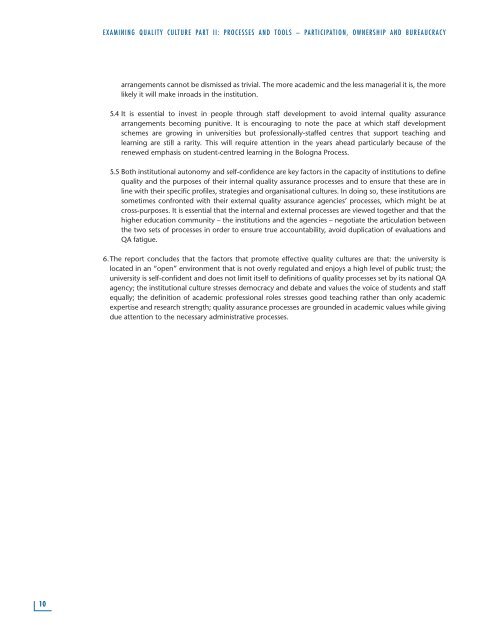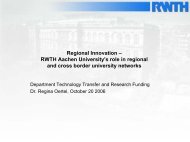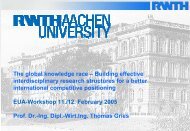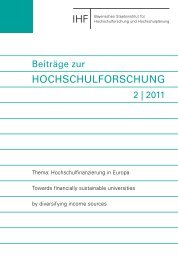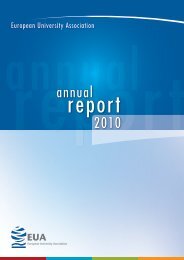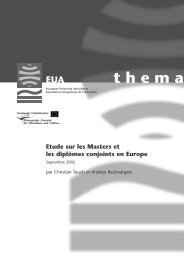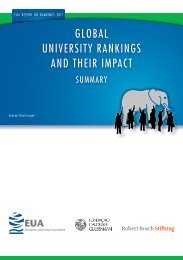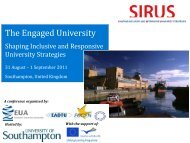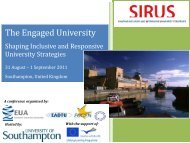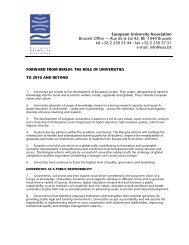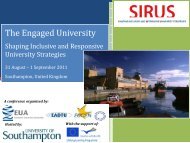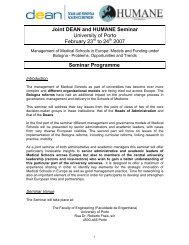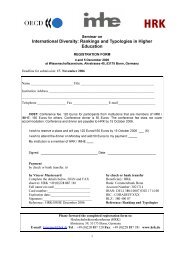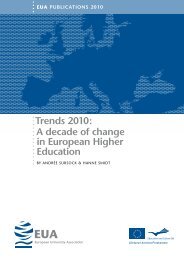Examining Quality Culture Part II: - European University Association
Examining Quality Culture Part II: - European University Association
Examining Quality Culture Part II: - European University Association
You also want an ePaper? Increase the reach of your titles
YUMPU automatically turns print PDFs into web optimized ePapers that Google loves.
10<br />
ExAmININg QUALITy CULTUrE PArT <strong>II</strong>: PrOCESSES ANd TOOLS – PArTICIPATION, OwNErShIP ANd BUrEAUCrACy<br />
arrangements cannot be dismissed as trivial. The more academic and the less managerial it is, the more<br />
likely it will make inroads in the institution.<br />
5.4 It is essential to invest in people through staff development to avoid internal quality assurance<br />
arrangements becoming punitive. It is encouraging to note the pace at which staff development<br />
schemes are growing in universities but professionally-staffed centres that support teaching and<br />
learning are still a rarity. This will require attention in the years ahead particularly because of the<br />
renewed emphasis on student-centred learning in the Bologna Process.<br />
5.5 Both institutional autonomy and self-confidence are key factors in the capacity of institutions to define<br />
quality and the purposes of their internal quality assurance processes and to ensure that these are in<br />
line with their specific profiles, strategies and organisational cultures. In doing so, these institutions are<br />
sometimes confronted with their external quality assurance agencies’ processes, which might be at<br />
cross-purposes. It is essential that the internal and external processes are viewed together and that the<br />
higher education community – the institutions and the agencies – negotiate the articulation between<br />
the two sets of processes in order to ensure true accountability, avoid duplication of evaluations and<br />
QA fatigue.<br />
6. The report concludes that the factors that promote effective quality cultures are that: the university is<br />
located in an “open” environment that is not overly regulated and enjoys a high level of public trust; the<br />
university is self-confident and does not limit itself to definitions of quality processes set by its national QA<br />
agency; the institutional culture stresses democracy and debate and values the voice of students and staff<br />
equally; the definition of academic professional roles stresses good teaching rather than only academic<br />
expertise and research strength; quality assurance processes are grounded in academic values while giving<br />
due attention to the necessary administrative processes.


